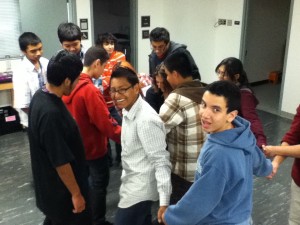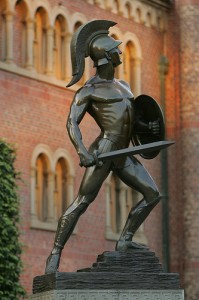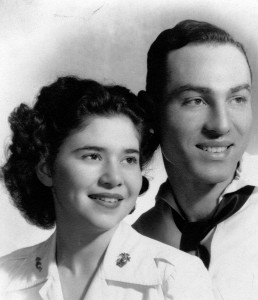NOTE: This plan has been archived for future use. My dissertation will boast a different, more manageable and personally useful design.
Project Plan — DRAFT:
FEBRUARY 6-FEBRUARY 12, 2012:
GameDesk & Laurel: Strategic Planning — In-person meeting at GameDesk on Wednesday, February 8, anytime after 12 pm
GameDesk 101:
In order to better facilitate this project in partnership with GameDesk, I’d like to situate the project that I’m working on within the larger ecology of GameDesk. It’d be really helpful to take a look at a “GameDesk 101”-esque document. It would outline GameDesk’s strategic 5-year plan, its partnerships and the contingencies on those relationships (e.g., deliverables that GameDesk will remit or receive), GameDesk’s guiding principles, etc. This will help me to draw connections between her project and GameDesk as a whole. By better understanding, where GameDesk has been, where it is, and where it’s going, I will be better equipped to figure out where the dissertation project has been within GameDesk, where it is, and where it’s going.
I’d also like to discuss:
A. Personnel — Who will be working on this project? What is each person’s availability and area of responsibility? How best do we task and communicate with one another?
B. Products — What reports, presentations, articles, books, videos, grants, Dojo modules, complementary curricula, best practices, new games, etc, do we anticipate this project producing?
C. Ownership and Authorship — Who is entitled to what? Whose names will go where? What, if anything, is proprietary/non-disclosure? What is our approach to monetizing vs. donating our research/IP? Which documents should we sign?
D. Other
Laurel & Michelle: Workshop Formative PD Research — In-person on Wednesday, February 8, or online/Skype after 2 pm on Friday, February 10
-Instrumentation: What is the best tool for instructors to assess each of their students’ emotional regulation capacity/performance? What is the best tool for youths to assess their own emotional regulation capacity/performance?What is the best tool for observers to assess small group members’ emotional regulation performance?
-Modification/Development: What other characteristics do PDs have that: A) are not part of the tool but B) should be screened for (e.g., lack of suspension/expulsion for violence, etc)? Which questions should be asked in semi-structured focus group?
-Sample: What are the characteristics of GameDesk’s partner organizations (e.g., non-profits, schools, teachers) vis-a-vis youths’ age, ethnicity, SES, academic performance, urbanity, administrative and/or teacher-level support, etc? Which characteristics will determine who our partners will be for formative testing and principal research?
FEBRUARY 13, 2013: Laurel delivers to GameDesk the instructor tool and cover letter; the cover letter explains the project and gives dates for notification (March 5) and formative testing (March 8-9) of certain students selected by the Dojo team (based on teachers’ responses) to visit GameDesk
FEBRUARY 13-FEBRUARY 29, 2012: GameDesk delivers tool and cover letter to partner organizations and follows up with them in order to obtain the highest response rate possible
MARCH 1-2, 2012: GameDesk scans instructors’ responses and emails to Laurel
MARCH 5, 2012: Laurel (and interested GameDesk personnel) identifies PD youths to come in for formative testing; GameDesk notifies these youths by email and telephone
MARCH 7, 2012: GameDesk follows up with PD youths and confirms their attendance, knowledge of how to get to GameDesk, etc
MARCH 8-9, 2012: Formative research – PD youths (recommended by their teachers) meet with Laurel and personnel at GameDesk
-Purposes:
A) Collectively discover some micro-behaviors (e.g., practices that these youths engage in and/or that others engage them in);
B) Learn their perceptions of a PD’s profile. What does a PD’s life look like? What sorts of grand behaviors would a PD enact (e.g., setting and realizing goals) or avoid (e.g., losing their temper)?;
C) Baseline Dojo scores;
D) Initial impressions of Dojo
-Tools: self-assessment via validated instrument (Qualtrics); Dojo game play (record screen); small group challenge (videotape); semi-structured focus group (videotape)
MARCH 10-APRIL 16, 2012: Laurel analyzes results of formative testing, reviews relevant literature, gains familiarity with various serious and otherwise popular games, writes and delivers: A) report to GameDesk and B) prospectus to dissertation committee
APRIL 16-APRIL 23, 2012: Laurel drafts IRB submission (including necessary documentation and instrumentation); dissertation committee reviews and returns comments on prospectus; Henry drafts letter of support for funding application
APRIL 23-27, 2012: Laurel revises and submits project to IRB, second draft of prospectus to committee
APRIL 27-30, 2012: Dissertation committee approves prospectus; For funding to support dissertation research focused on online communities, Laurel submits to Annenberg: a letter of support from the dissertation supervisor assuring Annenberg that the dissertation project is “shovel ready”; and a description/rationale/timetable.
APRIL 27-MAY 11, 2012: IRB reviews and approves submission (contact: RoseAnn Fleming)
MAY 14-JUNE 29, 2012:
-Work with PD’s to suggest game design modifications and curriculum components for Dojo.
-Liaise with GameDesk developers regarding game design modifications and take lead on realizing complementary curriculum.
-Facilitate outreach efforts with PD’s and other interested youths, spreading the word about Dojo and PD’s emotional regulation strategies.
AUGUST 2012:
Gather endline data on youth population (both PD’s and others introduced to Dojo via PDs’ efforts)
late fall 2012: write dissertation, deliver chapters periodically
January 2013: deliver penultimate draft to committee
February 4, 2013: deliver final draft to committee
end of February, 2013: defend dissertation
March 2013: implement committee’s revisions, format dissertation properly
April 1, 2013: upload dissertation to graduate school
COMMENTS FROM DR. LYNN MILLER:
With SOLVE (part of the theory), to enhance emotional self-regulation, we use a narrative self-regulatory circuit (based on developmental psychology work) involving an ICAP ( interrupt a risky choice, challenge with a particular message that’s been piloted to be effective for what we’re trying to do for a given audience; acknowledge feelings, motives, desires,provide alternative behavioral choices to deal with those feelings, motives, etc. more effectively). After this they are given another chance to make a choice (the same risky or a new choice) which leads them in different directions that are evaluated at the end of the game (so they can see how they could have made different choices that would have lead to different outcomes). If they can play the game multiple times, this last step can be deleted — they’ll learn this as they play the game.
We’ve done some work already (pilot work) showing that assessing self-report emotion during a game doesn’t seem to distract or take participants out of the game (surprisingly!). But, having a running assessment of the user’s state (especially with some self-report data to triangulate might be useful).





